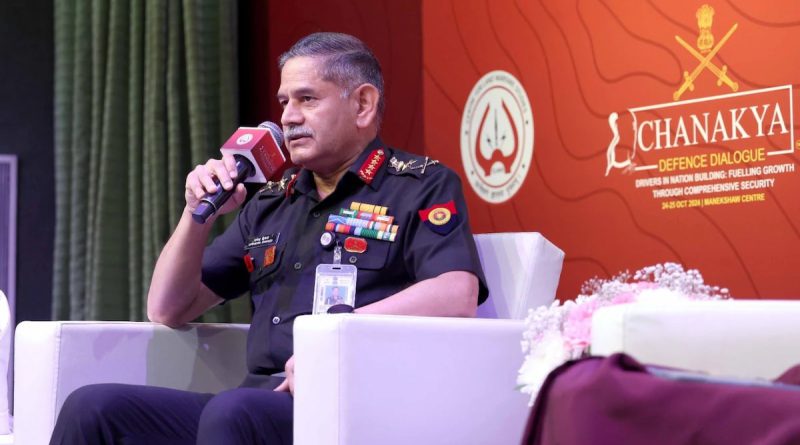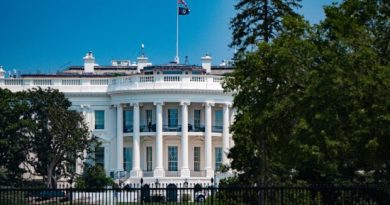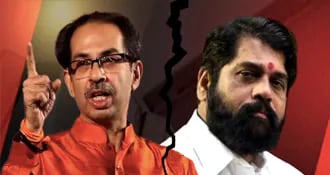“Should Not Allow Wrong Narratives To Be Built Up”: Army Chief On Manipur
The situation in Manipur has become a battle of narratives and it is important to stop the build-up of wrong narratives, Indian Army chief General Upendra Dwivedi said at an event today. He also spoke on two controversial issues linked to the Manipur violence – the alleged burning of a culturally and historically significant public installation of the Kuki tribes on May 3, 2023, and the recent row over a leaked intelligence report that warned of some 900 Kuki militants preparing to enter India from Myanmar via the border in Manipur.
“So as far as the Manipur problem is concerned, it all started in May 2023 with a rumour that there was an Anglo-Kuki war centenary gate, which was being burnt. It was not being burnt. I have gone on ground and confirmed it with everyone. That rumour-mongering led to major violence, which is yet to be stabilised,” General Dwivedi said at the second edition of the Chanakya Defence Dialogue 2024, a flagship event organised by the Indian Army and the Centre for Land Warfare Studies (CLAWS).
The army chief denied weaponized drones had dropped bombs on civilians, and linked this allegation to what he called a “false narrative”.
“… There was a narrative of drones dropping bombs. We went on the ground and checked. There was no drone bombing. There was another wrong narrative that said 900 anti-national elements had infiltrated. We checked. There was nothing like that. So if we control that, I think things will be alright,” General Dwivedi said.
READ | “900 Kuki Militants” Report Not Substantiated On Ground: Manipur Security Adviser
Manipur Security Adviser Kuldiep Singh had told reporters in Imphal on September 20 that there was drone bombing, contrary to comments made by former Assam Rifles chief Lieutenant General PC Nair (retired) in an interview to a news channel that there was no evidence of the use of weaponized drones in Manipur.
To a question on the intelligence leak linked to the “900 Kuki militants” allegations, Mr Singh had said they believe it to be “100 per cent correct” unless proven wrong. Five days later, amid protests by Kuki groups that criticised the Manipur government for spreading fear, the Security Adviser announced that the intelligence “input was verified from different quarters, but it could not be substantiated on ground” and that “there was no basis to believe in any such input.”
General Dwivedi pointed at the situation in Myanmar where the junta is fighting many ethnic insurgents as one of the concerns in Manipur as the state shares a border with the neighbouring country.
“In a lighter vein, ek ke saath ek free. Manipur was a problem and now you have the Myanmar problem also coming in… so what has happened over a period of time is that it has become a battle of narratives. There is a polarisation between the communities. The situation may be stable today, but it is tense,” General Dwivedi said.
“… The society has become weaponized, got weaponized to some extent because the weapons were looted. That also needs to be seen. The women-led organisations have come up for the defensive purposes. The underground organisations have come up for defensive purposes. The battlelines are getting hardened. Therefore, what we have done as of now is that firstly we have to be very clear. It has to be a whole-of-nation approach,” General Dwivedi said, adding the Assam Rifles and many other stakeholders which are already operating in Manipur are trying to calm down the situation and restore trust.
“… When social cracks or social fracturing takes place, it takes its own time to kind of recover. We have been able to recover a large number of weapons, approximately 25 per cent of them, and double the weapons which are of a local kind.
“I have also gone and met ex-servicemen because they are the last bastion of national integration and social harmony. They are advising us how to go about it. We are working closely with them as well as with the central administration to look into how and what are the possible lines of effort which we should give,” General Dwivedi said.
On concerns about foreign assistance to insurgent groups from Myanmar, the army chief said it is a “very, very complicated issue” if the history of Manipur is retraced. “We have to go back to Kabaw Valley and so on and so forth. We will not talk about it, but what is important is that we earlier had something called valley-based insurgent groups or VBIGs. They were being supported from across. Now, a similar kind of allegation is coming for the other groups. Out here, what we are looking at is that we should not allow wrong narratives to be built up,” General Dwivedi said.
READ | Row Over Assam Rifles Ex Chief’s “Meitei Police, Kuki Police” Comment; Cops Say “Myopic Mindset”
The Centre has banned the VBIGs, while the Centre and the state government have signed the tripartite suspension of operations (SoO) agreement with nearly two dozen Kuki-Zo insurgent groups. The Manipur government and Meitei civil society organisations have demanded the Centre to scrap the SoO agreement over allegations that the Kuki-Zo armed groups have been taking part in the ethnic violence. Broadly, the SoO agreement says the insurgents are to stay at designated camps and their weapons kept in locked storage, to be monitored regularly.
Only one VBIG has so far signed a SoO-like agreement with the Centre and the state government. However, the involvement of overground insurgents from both communities in the Manipur clashes was confirmed recently by the police after a gunfight in Jiribam district, neighbouring Assam.
Three Kuki insurgents who were killed in the gunfight were members of the Kuki Liberation Army (KLA), whose two factions are part of the two umbrella Kuki-Zo groups that are part of the SoO agreement. A member of the Meitei insurgent group United National Liberation Front (Pambei), or UNLF(P), was also killed in the Jiribam gunfight. The UNLF is the oldest Meitei insurgent group, which later broke up into two factions; the Pambei faction signed a tripartite peace agreement with the Centre and the state government in November 2023.
VIDEO | Standoff Between Armoured Vehicle And Suspected Insurgents In Manipur’s Moreh
“As far as external support is concerned, Myanmar is having its own problems… They also have some people who are getting displaced. When they are getting displaced, where will they go? They will only go to those places which are peaceful and ready to accept them, and that’s what is happening in Mizoram and Manipur. So those people who are coming, they are coming unarmed and they are coming for some kind of shelter, and India will make sure that they are provided shelter, food and support till the time we can,” General Dwivedi said.
There are many villages of the Kuki tribes in the hills surrounding the Meitei-dominated valley. The clashes between the Meitei community and the nearly two dozen tribes known as Kukis – a term given by the British in colonial times – who are dominant in some hill areas of Manipur, has killed over 220 people and internally displaced nearly 50,000.
The general category Meiteis want to be included under the Scheduled Tribes category, while the Kukis who share ethnic ties with people in neighbouring Myanmar’s Chin State and Mizoram want a separate administration carved out of Manipur, citing discrimination and unequal share of resources and power with the Meiteis.
Disclaimer: (Only the headline and picture of this report may have been reworked by the KanoonKiBaat staff; the rest of the content is auto-generated from a syndicated feed.)
Source Link





